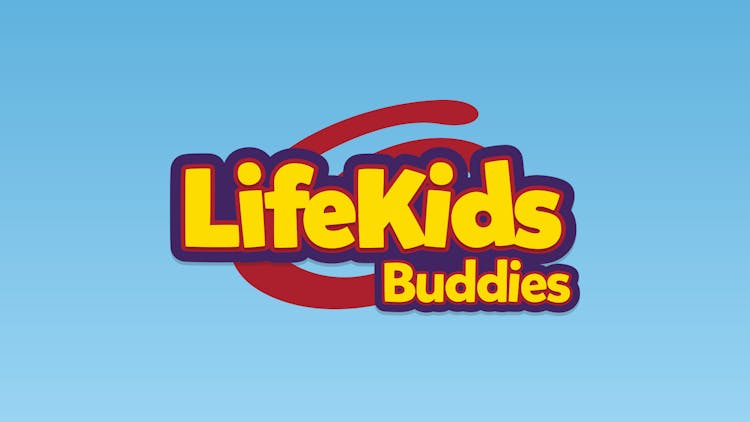Small Group Discussion is when leading small can really pay off! Here are some ways you can win and have real-life conversations with your kids.
Watch This:
This video will give you great tips on how to lead Small Group Discussion well:
Check Out These Tips:
Know the Goal
- Who’s talking? You know a lot, and you have a lot of life experience. But your role is to provide a safe place for kids to talk through what they’re learning and what they’re struggling with. Keep a healthy balance: Let kids talk 80% of the time, and limit yourself to talk for 20% of the time.
- Connection and Authenticity: For a kid to know that what they learn in church matters in their everyday life, their connection with each other and you needs to be real. Help them know you and their peers care and that they’re safe sharing what’s on their mind by really listening to them and helping the other kids in the group listen well, too.
Be Smart with Your Guide
- There’s no prize for storming through the leader guide. Use your leader guide for what it is: a guide. It’s there to get you started, and it’s there when your group hits a standstill. If you’re more focused on covering everything on the leader guide than you are on what your kids are saying, you might be squashing what they really need to talk about.
- Choose questions that are right for your group. Not every question on the leader guide is going to be right for your group. Some may be too complex for 1st graders, while some are too easy for 4th graders. It’s okay to pick and choose.
- Take it offline when you need to. Some weeks, a kid is really struggling and needs your group to listen and support them. Allow your group to be a safe place to talk about divorce, moving, bullying, and sibling fights. Other weeks it’s a lot lighter—your group is obsessed with the latest kid trend. That’s okay. As long as your kids are leaving feeling they’re supported, loved, and known, going off topic now and then won’t hurt.
- Cover the ABCs. See if your kids have any questions about what it means to follow Jesus, and ask if anyone wants to start following Him. If a kid says they do, celebrate together, because that is something special! Don’t pray a salvation prayer with them, but let them know you’ll talk with their parents about it when they come to check them out.
- Pray together. Let kids in your small group share the things they want to talk to God about, and keep track of them. You can ask kids to pray for each other, or you can lead the whole group in prayer. If you’re not sure what to pray, there is always a short prayer listed in the Small Group Leader Guide to help you out.
- Pass out Challenge Cards. Point out the activity on the Challenge Card, the weekly point and Bible verse, and look up the Bible Plan on your YouVersion Bible App. Encourage kids to do the card with their family and bring it back to get points at the Konnect Window.
What Do I Do?
- When kids need one-on-one support: If a kid is sharing a story that is scary or inappropriate for the other kids to hear, reach out to your emcee or coach to have a one-on-one conversation with the kid. Reach out to a LifeKids Staff member when you suspect abuse, neglect, homelessness, or a family in great need of material, emotional, or spiritual support.
- When a kid turns their back on the group or leaves: Ask your emcee or coach for help. They can talk with the kid one on one to find out what’s going on. If you don’t have an emcee or coach available, let the kid know it’s okay for them to have alone time, and you will save them a spot for when they’re ready to be a part of the group. If the behavior becomes consistent each week, talk with your coach after the experience to see what they can do to support you.
- When a kid won’t talk: Some kids are shy, lack confidence in their own voice, or even get in a mood where they just don’t want to talk. Continue to give them opportunities to share, but don’t force them. Look for other chances to get them to open up, and compliment them to their parents when they do choose to speak up.
- When one kid talks the whole time: As the leader, you get to help everyone have a chance to share. It’s okay to let a kid know that they’ve gotten to share a lot, so it’s someone else’s turn. If they try to talk over someone else, remind them to be respectful by listening instead of talking.
- When your group is talking over each other: Take a minute for everyone to stop talking, rest their hands on their chest, listen to their own heartbeat, and take a deep breath. Once you take a break, remind kids to take turns talking, and have them hold their hand up to speak or let them hold an object like a wadded-up paper when it’s their turn to speak. If it gets chaotic again, repeat the process until your group has calmed down.
- When what I’m doing isn’t working: Get help. Ask your coach, emcee, or your tech to come over and join your group. They can help you reset and finish out your discussion. If you feel like you’re having trouble every week, talk with your coach or a LifeKids staff member after the experience to help you come up with a plan to turn things around.
Talk It Over:
Now that you’ve watched a video and read a few tips, help the info stick! Talk over these questions with your experience coach or a LifeKids staff member. Share what you’ve learned with other leaders in Konnect!
- How do you think Small Group Discussion benefits kids?
- Share a great discussion you’ve had with your small group.
- What are some challenges you’ve had in Small Group Discussion, and what did you do to overcome those challenges?
- What challenges do you still need help with? Ask an experienced leader, your coach, or a LifeKids staff member for advice.
A special thank you to Orange and the reThink Group for their ideas and research on their “lead small” philosophy referenced in this article.


